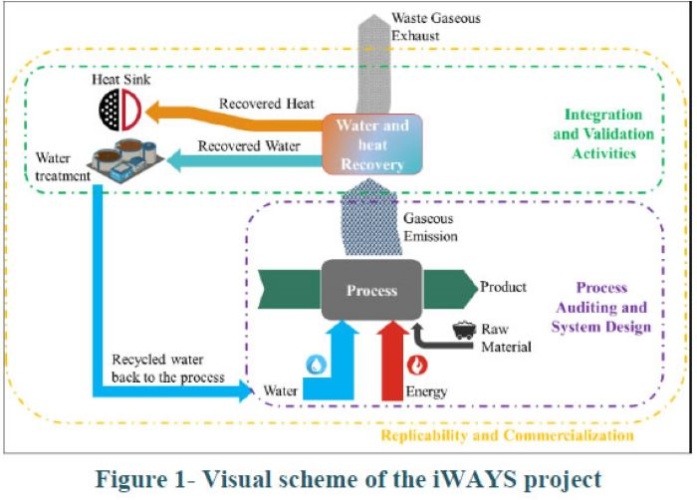Project aims to recycle industrial wastewater and heat
Published on by Water Network Research, Official research team of The Water Network in Academic
Engineers at Brunel University have received nearly €1m to develop new water treatment, exhaust condensation and waste valorisation systems to let factories recycle 30 per cent of wastewater and heat.

(Image: Brunel University)
The funding comes from €10,596,775 being made available by Horizon 2020 for the iWAYS (Innovative Water Recovery solutions) project.
Next generation solutions will initially be aimed at the chemicals, steel and ceramics industries.
“Industries release one-third of the global greenhouse gas emissions, of which 70 per cent stem from heat generation,” said scientific director, Professor Hussam Jouhara. “One way to reduce the environmental footprint is to recover the generated heat and reuse it in other industrial processes.”
The new industrial scale heat and waste recycling technologies are forecast to cut water use by 30 per cent to 64 per cent and reuse water and heat from humid gases by 30 per cent. They will also sift out acids and tiny particles from run-off gases.
According to Brunel, recycling waste heat has been a challenge in industry because of the huge costs to build and maintain the technology and the low return on investment. Prof Jouhara’s Heat Pipe Heat Exchange system is said to drastically cut manufacturing costs and time, making it a safe, efficient and affordable option for any heat source.
Spanning nine European countries and bringing in 18 universities and organisations, the four-year iWAYS project starts in December 2020. Engineers will develop a range of cost-effective technologies that boost productivity and help towards the EU’s Green Deal goal of making Europe carbon neutral by 2050.
“The project intends to transform white plumes from industry´s chimneys – starting from ceramics, chemicals and steel – into a source of water and energy,” said iWAYS co-ordinator, Prof Luca Montorsi at Italy’s University of Modena and Reggio Emilia.
Taxonomy
- Water Reuse & Recycling
- Industrial Water Reuse
- Nutrient Recovery & Reuse